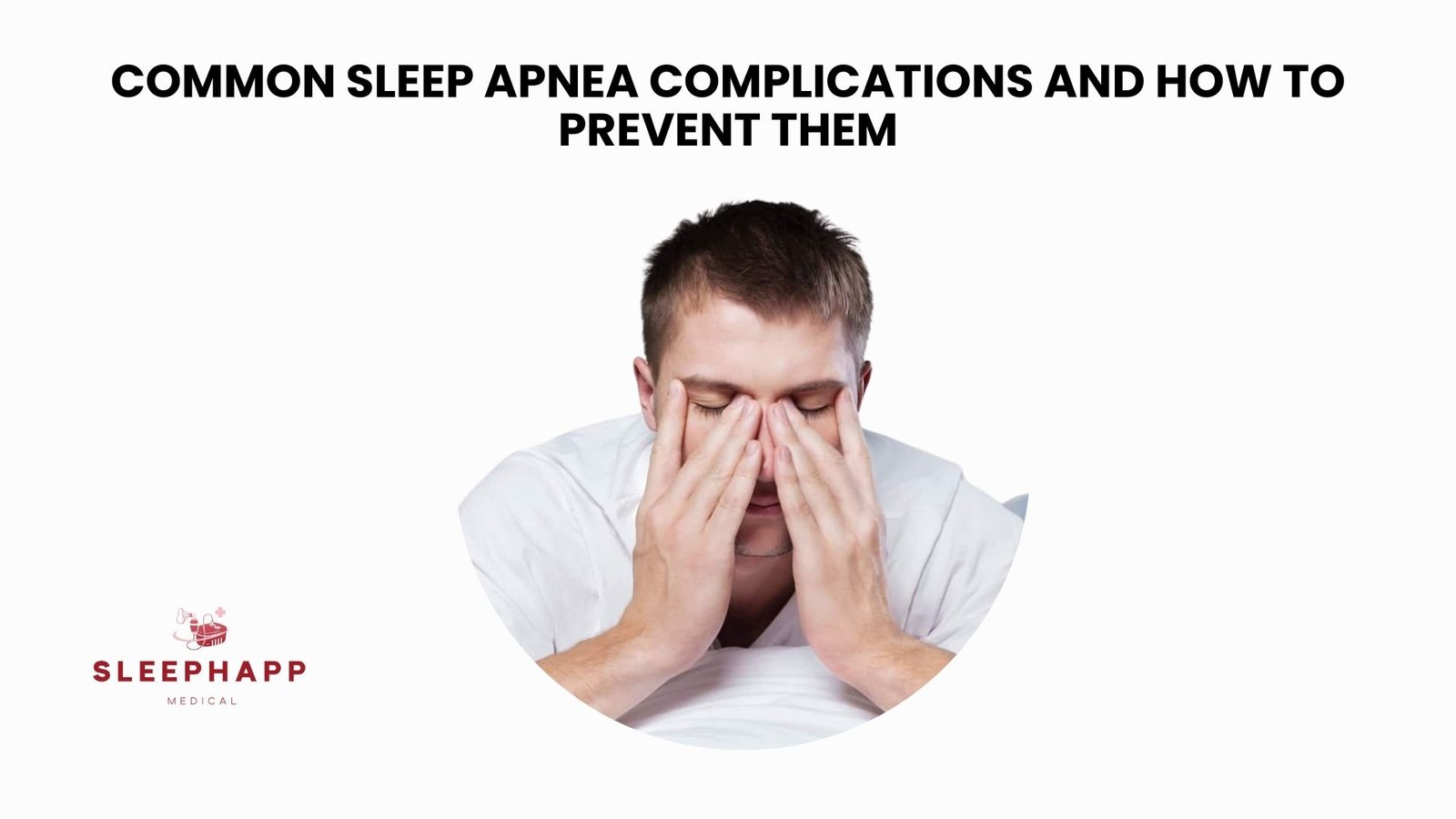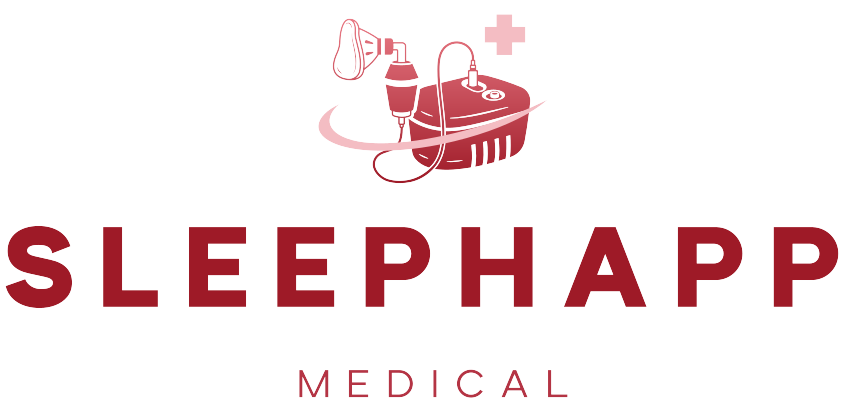Common Sleep Apnea Complications and How to Prevent Them
Home » Common Sleep Apnea Complications and How to Prevent Them

Table of Contents
Sleep apnea is a common but serious sleep disorder. It affects millions of people. Sleep apnea causes breathing to stop many times during sleep. This can lead to many problems if not treated. These problems affect both physical health and mental health. It can also reduce quality of life. This article talks about the problems caused by sleep apnea. It also gives tips to help prevent them.
Common Complications of Sleep Apnea
These problems can harm the body and mind. Knowing these problems helps with early care and treatment. Below are the common issues linked to sleep apnea.
Cardiovascular Problems
Sleep apnea can harm the heart and blood vessels. It lowers oxygen levels. This puts stress on the body. The body tries to get more oxygen by raising blood pressure. Over time, this can become a long-term problem. Sleep apnea can also make heart disease worse. It stresses the heart, causing heart attacks and arrhythmias. It can also damage arteries and cause coronary artery disease. Sleep apnea also increases the risk of strokes. It reduces oxygen, harms blood flow, and affects the brain.
Daytime Fatigue and Cognitive Impairment
Sleep apnea stops good sleep, causing these problems:
- Daytime Sleepiness: People feel tired during the day. This affects memory, focus, and decision-making.
- Cognitive Decline: Not enough sleep can harm the brain over time, leading to problems like dementia or Alzheimer’s.
- Mood Problems: Poor sleep can make people angry, anxious, or sad.
Obesity
Obesity and sleep apnea affect each other. Extra weight, especially around the neck, can block airways during sleep. Sleep apnea can also worsen obesity. It disrupts hormones that control hunger and fullness, leading to overeating and weight gain.
Complications in Surgery and Medications
Sleep apnea is risky during surgeries and with sedatives or anesthesia. People with untreated sleep apnea may have trouble breathing after surgery. Their airways are more likely to collapse when under anesthesia.
Reduced Quality of Life
Poor sleep, tiredness, and health problems can make life more complicated. Patients often face:
- Less Work: Tiredness makes it hard to work well.
- Relationship Issues: Snoring and lousy sleep can disturb partners, causing tension.
How to Prevent Sleep Apnea Complications
Many of these problems can be prevented. This can be done with timely treatment and proper care. Below are effective ways to reduce the risks:
Sleep Position Adjustments
Sleeping on your back can worsen sleep apnea. Gravity pulls the tongue and soft tissues down, blocking the airway.
Tips for Better Sleep Positioning
- Sleep on your side to keep the airway open.
- Use pillows or wedges made for side-sleeping.
- Consider a positional therapy device that gently encourages side sleeping.
Avoid Alcohol and Sedatives
Alcohol and sedative medicines relax throat muscles. This can block the airway.
What to do:
- Drink less alcohol, especially at night.
- Ask your doctor for sleep aids that aren’t sedatives.
Manage Nasal Congestion
Nasal congestion can make breathing harder through your nose, worsening sleep apnea symptoms.
Solutions for Nasal Congestion
- Use saline sprays or a humidifier to clear your nose.
- Consider nasal strips or dilators to improve airflow.
- If allergies are the cause, consult your doctor for antihistamines or other treatments.
Address Underlying Conditions
Action Steps
- Work with your doctor to manage chronic conditions effectively.
- Ensure medications for related health issues are taken as prescribed.
When to See a Doctor
If you have loud snoring, choking, or gasping while sleeping, see a doctor. If you feel exhausted during the day, getting help is essential. Early treatment can stop problems and help you feel better.
Conclusion
Sleep apnea is not just about snoring; it’s a serious problem. It can cause many health issues. Lifestyle changes should be made to reduce its effects, and medical help should be provided. Also, practice good sleep habits. Pay attention to warning signs. See a doctor if needed. A good night’s sleep is essential for your health and happiness.
Sources:
- https://www.sleepfoundation.org/sleep-apnea
- https://my.clevelandclinic.org/health/diseases/8718-sleep-apnea
- https://www.mayoclinic.org/diseases-conditions/obstructive-sleep-apnea/symptoms-causes/syc-20352090
- https://www.ncbi.nlm.nih.gov/books/NBK459252/
- https://www.hopkinsmedicine.org/health/conditions-and-diseases/obstructive-sleep-apnea
- https://www.pennmedicine.org/for-patients-and-visitors/patient-information/conditions-treated-a-to-z/obstructive-sleep-apnea
